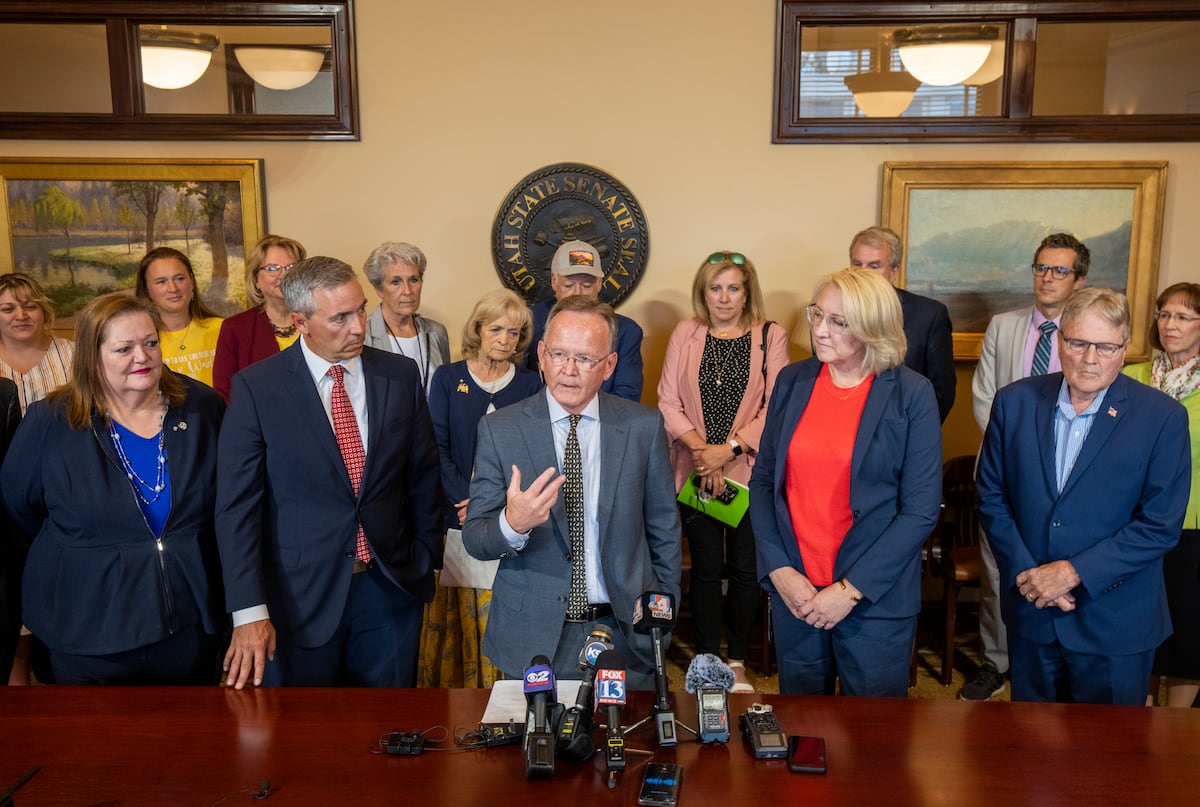You are using an out of date browser. It may not display this or other websites correctly.
You should upgrade or use an alternative browser.
You should upgrade or use an alternative browser.
"We the People..."
- Thread starter espola
- Start date
Roe v Wade has been divisive since its inception. Quite a few legal minds that support pro choice think RvW was a poor decision.
The people never got to decide on the issue...and both parties have been playing kick ball with it for 50 yrs.
Now finally the states and/or congress can make legislation related to abortion.
Quote a few legal minds? Who are they?
100% Lion. I had to calm someone down today because of misinformation. She is a very dear liberal friend who is very visually shaken. I told her you can have abortion on demand up to 6 months in California. Dick's Sporting Goods just announced $4,000 to anyone in need of abortion. Other States have now outlawed and you must go to another State to abort baby.The SCOTUS ruling does nothing to abortion laws in California...
I will add that Blacks represent 12% of the country. However, Black babies make up 33% of the deaths at abortion clinics. Most of these deaths happen late at that place where they have a Plan for the Parent in the Hood. 86% of their abortion on demand on in the inner city. Think logically everyone. I swear when the real news comes out, you will all be shocked with what they have done with baby. It will make all of you puke and feel sick for days. If you tell people the truth, they don;t believe you. You have to show the people the truth so they believe. God Speed!
Start with Ruth Bader GinsbergQuote a few legal minds? Who are they?
A big shout out to Harry Reid for eliminating the filibuster for certain judicial nominees, that selfish move led to Republicans eliminating the filibuster for Supreme Court nominees...
Abortion is back in state legislation where it can be locally controlled to better suit local beliefs...
Abortion is back in state legislation where it can be locally controlled to better suit local beliefs...
100% brother Lion. It all depends who the locals are in your neighborhood. I wonder wants going on in Poway? Carlsbad? How about Escondido? Show me your lightning bolt Oceanside. El Cajon, wtf are you doing about this life or death topic? California Locals are willing to kill baby up to 6 months. I know a Doc who just expanded his on demand abortion clinic and his looking for nurses to handle the demand. You must be fully jabbed to work for him. Companies are willing to fork out $4,000 so you get your ass back to work and not milk the maternity time off angle and cost the company a missing worker and most likely a mom who would want to stay home and take care of her new bundle of joy. Not so fast folk. Dicks Sporting Goods is willing to lose a future new customer and help pay to have the kid killed before the kid can play sports and buy equipment to pay and play in todays sports. This is is truly insane it's come down to this. Talk about Coo Coo, Nonsense and craxy all in one.A big shout out to Harry Reid for eliminating the filibuster for certain judicial nominees, that selfish move led to Republicans eliminating the filibuster for Supreme Court nominees...
Abortion is back in state legislation where it can be locally controlled to better suit local beliefs...
THE BIG LIE.....
THE BIG LIE.....
Of course. How silly of me to forget. There's that, too.
It's okay Magoo, you like Biden are just confused.Of course. How silly of me to forget. There's that, too.
Read up, that way you won't seem so "silly"
Perhaps a little card with facts on it would help....
Now now Mr. Magoo. Where is EOTL btw on this joyous occasion for crush? He should at least come back today to say he was wrong and I was right. Let's see, I predicted GDA would fold because of liars. I also said Roe v Wade will be kicked to the States and one day in my lifetime no one will ever want to kill their baby. I know why they do today and it sickens me and hurts my heart. Women are full of pain by the mistreatment of the men. We can and will do better this time around. Today, in our awesome State we can abort baby up to 24 weeks. Grandpa, that is plenty of time. Dick's and other family corporations will also pay $4,000 to send mom to California. We will become the abortion State.Of course. How silly of me to forget. There's that, too.
Desert Hound
DA
That would be a good one to start. Lion Eyes posted her thoughts on it above. Apparently that was too hard for you to read and or understand.Start with Ruth Bader Ginsberg
That war has already been fought in the field and in the courts.
...and doesn't apply to New York's concealed carry law.
...and you don't live in New York......and doesn't apply to New York's concealed carry law.
But having read the decision...what part of the decision seems unconstitutional to you?...and you don't live in New York...
Sex in Utah (who knew?) --

 www.sltrib.com
www.sltrib.com

Video: GOP lawmaker says she trusts Utah women to control their ‘intake of semen’ as abortion trigger law goes into effect
Utah Republicans in the Legislature celebrated Friday's Supreme Court decision overturning the landmark 1973 Roe v. Wade decision on abortion.


